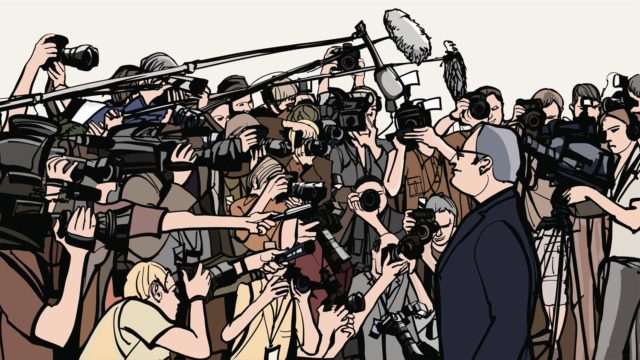I am a student of Mass Communication background. My hold on the subject always reflected my dearness towards the same since day 1. My special affinity for Journalism had established and remained since graduation days not because it opened up opportunities for me to hold a mike and appear on television or be another Arnab Goswami (with due respect). Instead, I was influenced to take up this profession because it challenged the obvious laid-out norms, questioned the legitimacy of everything and stood as the bridge between the common man and the running system. So when I talk about the lost spirit of Journalism, I prefer to opt for the traditional approach, i.e, going by its definition. What is Journalism? It is the process of gathering and presenting information in the form of news to the public. As simple as that. But then what is Journalism for the twenty-first century? It is the process of gathering, twisting, manipulating and then finally presenting the concluding information in the form of news to the public. The question is what has really changed so much in these years to the extent that the whole system of news gathering seems to be losing its essence?

When information is delivered in the newsroom from a gigantic range of sources, the editor of a particular news organization has to select the newsworthy among a plethora of information. This selection takes place because the editor is responsible for which news makes sense, which information must reach the public faster and also because he/she is in competition with other news outlets. However, there is a broadly agreed set of ‘news values’ or ‘ethics’ that every Journalist is supposed to follow for better understanding of what must be published and what not. One of the best known lists of news values was drawn up in 1965 by researchers Johan Galtung and Marie Holmboe Ruge who identified the values into three categories – impact, audience identification and pragmatics of media coverage. These values were set with a base designed to aim for practicing Journalism pillared on truthfulness, loyalty and welfare to its citizens, discipline of verification, public criticism, proportionality and few more. It is disappointing how the same values are manipulated today into a stitch of lies, all for commercialism and power.
News has the ability to quench the thirst of a basic human impulse. We, the public, are too much interested in knowing about everything that is occurring beyond our direct experiences. This habit somehow builds an unconscious sense of confidence and superiority within us. Journalists have an awareness of this analysis and they tend to select stories that not only have high news value but also that exhibits a sense of sensationalism. Recently, a well-known News Channel, Zee News, had been accused of doctoring a video clip, deliberately misinterpreting some students of Jawaharlal Nehru University and triggering an ugly controversy in the University. Later a journalist of Zee news, Vishwa Deepak, not only resigned from the News Channel but also published his resignation letter in protest against the role Zee News played in playing with information.
There have been similar cases in the past where Journalists have been dishonest with their professional values, be it spreading rumors about famous personalities or violating privacy of people and organizations or intentionally hiding facts for the public to form opinion in accordance to their strategy. We are also well aware that what may seem as a credible news source can often be a covert operation of political agendas or governmental propagandas. Bereft few news organizations, there are a handful of emerging news outlets these days which are inclined to a particular political ideology and fail to present opinions that might not be simply neutral, but perfectly balanced. Even in everyday reporting, bias can seep into a story with the reporter’s handling of facts or his/her negligence in verifying sources. This all comes down to the question of maintaining objectivity which is often clouded over in order to please many powerful audiences. While many journalists believe it becomes risky to work on perfect objectivity, on the other hand there still exist few media houses who believe in the requirement of free press in a democratic society like India because without a critical view of the government, political parties or private corporations and alike, the sole and true purpose of journalism goes in vain. The expectations of society on journalists are directly proportional to its citizens’ understanding of the importance of clarity, whose lack of it has not only loosened up journalism but weakened democratic society. Hence, unless we continue holding the concept of free press together, journalism not only loses its spirit but democracy loses its culture.





























Very true. #Indianyouth